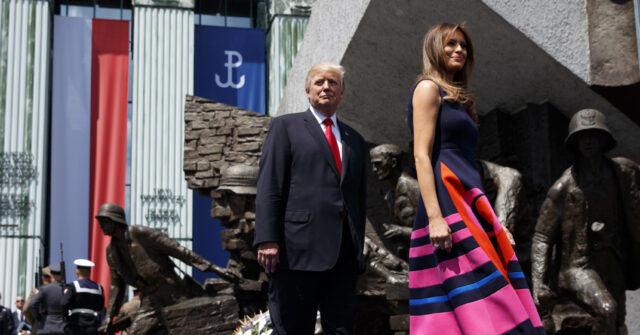In Poland, members of the conservative-populist Law and Justice party (PiS) celebrated Donald Trump’s recent electoral victory in the United States with applause and chants of his name during a session of the Polish Parliament, or Sjem. This enthusiastic response was reminiscent of Trump’s notable visit to Poland in 2017, where he was similarly celebrated by Polish crowds in Warsaw. The PiS lawmakers, some donning “Make America Great Again” hats, were acting as the opposition party following their previous tenure in power, during which they had established a close rapport with Trump’s administration. However, members of the ruling coalition led by Prime Minister Donald Tusk—a representative of the globalist-central political viewpoint—did not participate in this celebration, leading PiS lawmaker Adam Andruszkiewicz to criticize their lack of class.
Andruszkiewicz described the spontaneous demonstration in the Sjem as a reflection of political sentiments, maintaining that even small gestures can hold significant weight in international relations. He explained that, as a politician, witnessing the systematic decline of the right-wing movements was disheartening, highlighting that celebrating the victory of a friendly leader like Trump was an important sign of solidarity. The Polish government’s initial skepticism towards Trump during the 2016 elections—shaped by broader European concerns regarding NATO and security—soon evolved into a supportive relationship, particularly due to Trump’s firm stance on immigration and border control, which resonated positively in Poland.
Trump’s landmark visit to Warsaw in 2017 marked a significant political and diplomatic moment. During his speech at the Warsaw Uprising Monument, he emphasized the need for a unified effort to defend Western civilization against myriad threats. Trump asserted that facing such challenges required not only military means but also a profound resolve from the people of the West. His address posed a critical question about the West’s will to survive, urging nations to confront and combat forces intent on destabilizing their cultural and moral foundations. His rhetoric found a receptive audience among the Polish people, who greeted him with chants and expressions of support.
Trump’s call to action resonated through the streets, further solidifying the bond between his administration and Polish leadership. He inspired the audience with appeals to their national identity, urging them to unite for family, freedom, and faith, ultimately invoking God’s blessings for Poland, its allies, and America. His speech and the outpouring of support were likely seen as provocative by leaders from other EU countries, such as France and Germany, who were concerned about the implications of Trump’s confrontational stance toward globalist principles.
In contrast, the current political landscape in Poland under the coalition government led by Donald Tusk exhibits a departure from the previously held Conservative-Populist approach. This shift reflects a broader transition within the European bloc that favors a globalist agenda. Despite this, the conservative Polish President Andrzej Duda, maintaining a position aligned with PiS values, expressed enthusiasm for Trump’s victory, congratulating him and recognizing Trump’s role in shaping Polish-American relations during his presidency.
Overall, the Polish Parliament’s celebration of Trump underscores the ongoing ideological clash within Polish politics and the broader European landscape, where conservative sentiments find resonance in right-wing movements, especially in response to globalist governance. With the political dynamics evolving, the relationship between Poland and the United States could see renewed interest as parties like PiS strive to maintain the nationalistic sentiments that align with Trump’s leadership style while navigating the complexities of the current government coalition.

